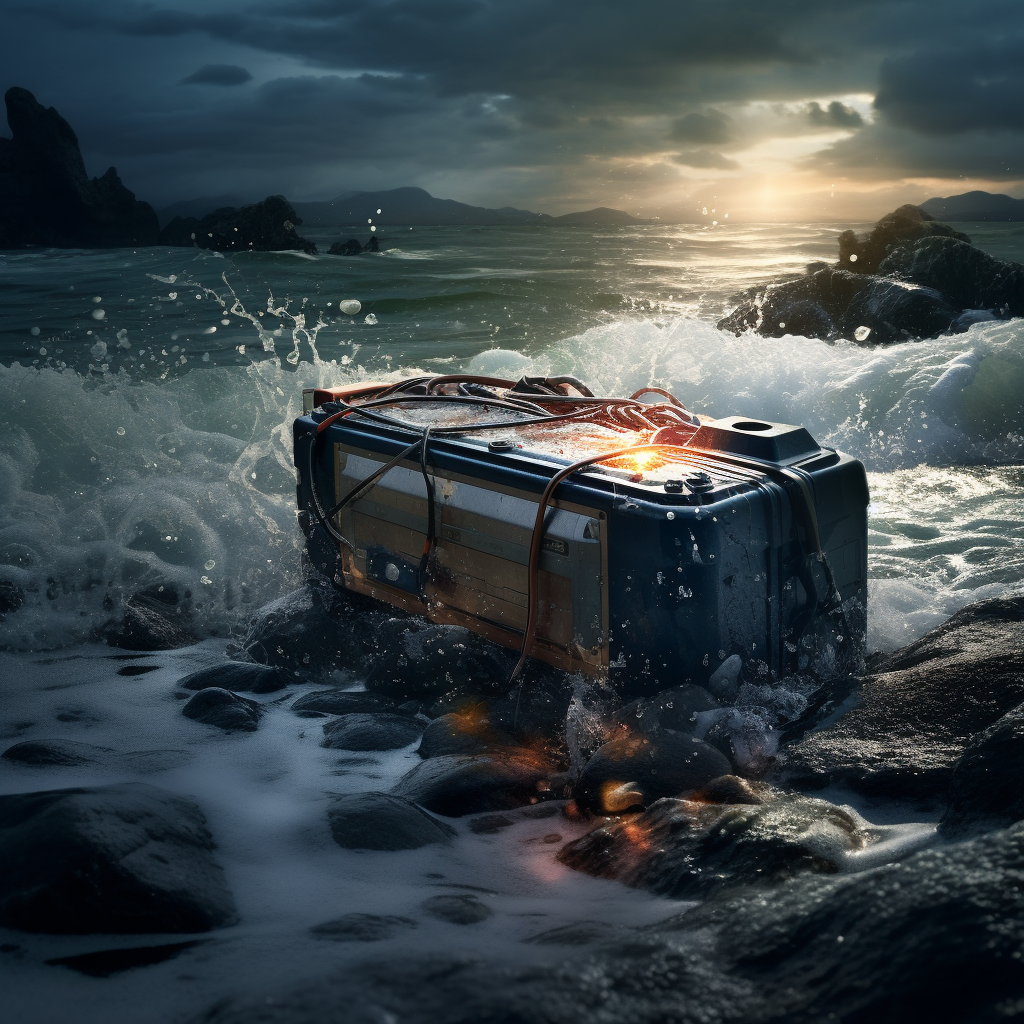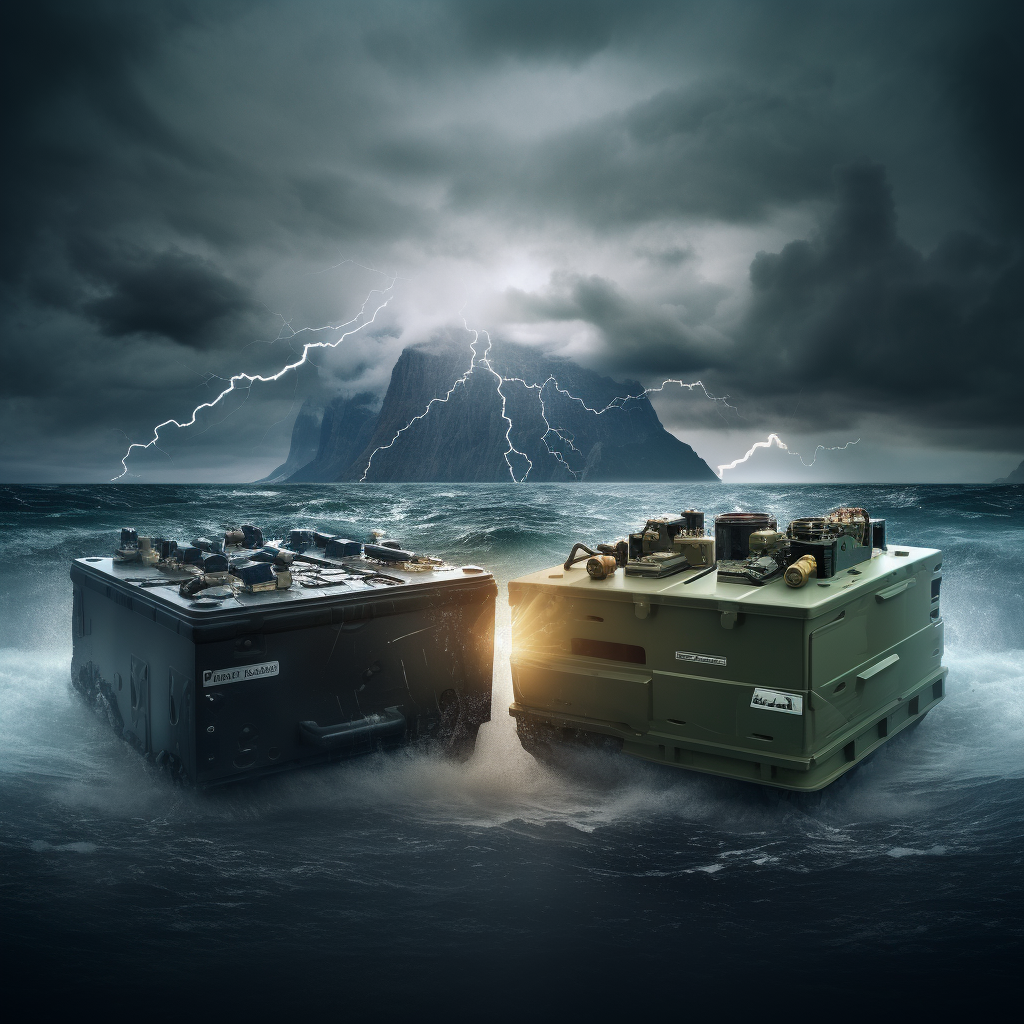Contents
Understanding the power requirements and functionalities of different battery types is essential, especially when choosing between car and marine batteries. Although they may seem similar at first glance, their design and purpose cater to specific applications. This article aims to shed light on their key differences, ensuring readers make informed decisions suited to their particular needs.
Basic Construction of Batteries
Before diving deep into the unique characteristics of car and marine batteries, it’s beneficial to comprehend the basic anatomy of batteries. All batteries, irrespective of their type, contain two primary components: an anode and a cathode, surrounded by an electrolyte. The chemical reactions that occur within these components produce electric currents.
Table 1: Basic Components of a Battery
| Component | Function |
|---|---|
| Anode | This is the battery’s negative terminal. It loses electrons (or gets oxidized) during the discharging process. |
| Cathode | Representing the positive terminal, it gains electrons (or gets reduced) during the discharging process. |
| Electrolyte | This medium allows the flow of ions but not the electrons. It’s essential for the battery’s operation. |
Now, with a rudimentary understanding of battery construction, let’s explore the specifics that differentiate car batteries from marine batteries.

Key Differences Between Car and Marine Batteries
3.1. Purpose & Design
- Car Batteries: Their primary function is to deliver a short, high-energy burst to crank and start the engine. Once the engine is running, the alternator takes over to power the vehicle’s systems. Due to this, car batteries are designed for short, intense bursts of energy.
- Marine Batteries: These are engineered to fulfill dual functions. They not only start boat engines but also power onboard accessories without the engine running. As a result, they release energy over a more extended period.
3.2. Lifespan & Durability
- Car Batteries: Typically last between 3-5 years. They aren’t designed to be discharged deeply, and doing so can significantly reduce their lifespan.
- Marine Batteries: Made for deeper discharges, they tend to last longer if maintained properly, usually around 4-6 years, depending on usage.
3.3. Energy Delivery
- Car Batteries: Deliver high energy in short bursts, suitable for ignition purposes.
- Marine Batteries: Offer a consistent and prolonged energy output, making them apt for running multiple boat systems.
3.4. Vibration Resistance
- Car Batteries: Have minimal vibration resistance as they are typically secured in place in the vehicle.
- Marine Batteries: Feature better vibration resistance due to the unpredictable waters they function in, ensuring durability despite constant movement.
3.5. Price Considerations
- Car Batteries: Generally more affordable due to their widespread use and less intricate design.
- Marine Batteries: Often carry a heftier price tag, attributed to their dual-function design and enhanced durability features.
How to Choose the Right Battery for Your Needs
Choosing between a car and a marine battery depends largely on the intended application. To make a knowledgeable decision, it’s pivotal to factor in the specific requirements of your vehicle or boat, as well as the conditions they will operate under.
4.1. Evaluate Energy Requirements
- Car: Consider the energy necessary to start the engine. For most standard vehicles, a typical car battery suffices. For vehicles with larger engines or additional electronic components, a battery with a higher Cold Cranking Amps (CCA) rating might be necessary.
- Marine: Reflect on the combined energy demand of both starting the boat’s engine and powering its accessories. This often requires looking at the Reserve Capacity (RC) rating of the battery, which indicates how long the battery can run without the engine.
4.2. Consider Environmental Factors
- Car: For cars operated in colder climates, the battery should have a higher CCA rating to ensure it can provide enough power during cold starts.
- Marine: Due to the exposure to saline environments and potential for deep discharges, opt for a marine battery designed with corrosion resistance and deep cycle capabilities.
4.3. Factor in Maintenance Needs
- Car Batteries: Many modern car batteries are maintenance-free. However, some might require periodic top-ups with distilled water.
- Marine Batteries: While some are maintenance-free, many marine batteries need regular checks and potential water additions, especially if they’re frequently discharged deeply.
4.4. Budgetary Constraints
While it’s tempting to opt for cheaper options, remember that in the world of batteries, you often get what you pay for. Investing in a quality battery can save future costs related to replacements or potential damage from battery failures.
Care and Maintenance Tips for Prolonged Battery Life
Proper maintenance can greatly extend the lifespan of both car and marine batteries. Here are some general guidelines to consider:
- Regular Inspection: Periodically check for any physical damages, corrosion, or loose connections.
- Clean Terminals: Corroded terminals can impede the battery’s performance. Clean them using a mixture of baking soda and water, and then apply a thin layer of petroleum jelly to prevent future corrosion.
- Avoid Deep Discharges: While marine batteries are better equipped for deep discharges than car batteries, it’s best to avoid completely draining either battery type.
- Secure the Battery: Ensure the battery is secured in place, especially in a marine environment where movement can be unpredictable.
- Store Properly: If storing the battery for prolonged periods, keep it in a cool, dry place and consider using a battery maintainer to keep it charged.
Conclusion
Both car and marine batteries play pivotal roles in their respective domains, with each being tailor-made to cater to the specific needs of the environment they function in. While car batteries prioritize a high burst of energy for short durations, marine batteries are versatile, providing both quick energy and prolonged power for onboard accessories.
Understanding these differences is paramount when faced with the decision of purchasing a battery. Whether for land-based journeys or marine adventures, investing in the right battery not only ensures optimal performance but also contributes to the safety and longevity of the equipment.
When cared for correctly, these batteries can serve faithfully for years. With regular maintenance, careful handling, and thoughtful usage, both car and marine battery users can maximize the value and lifespan of their investments.
As technological advancements continue to shape the future of batteries, keeping abreast of these changes will allow users to adapt and choose the best power solutions for their needs. But for now, whether you’re cruising down a highway or sailing through open waters, knowing the distinct characteristics of your battery is the first step to a smooth and uninterrupted journey.

FAQs
- Can I use a car battery on my boat or vice versa?
- While it’s technically possible, it’s not recommended due to the distinct designs and purposes of each battery type. Using them interchangeably might reduce efficiency and lifespan.
- How often should I replace my marine or car battery?
- Typically, car batteries last between 3-5 years, while marine batteries can last 4-6 years, depending on usage and maintenance.
- Why is my car battery draining faster than usual?
- Multiple factors could cause this: leaving lights or accessories on, faulty charging system, extreme temperatures, or the battery reaching the end of its lifespan.
- Is it safe to handle a corroded battery?
- It’s essential to be cautious. Corrosion can be acidic. Always wear protective gloves, and if cleaning, ensure you’re in a well-ventilated area.
- What does ‘deep cycle’ mean in marine batteries?
- ‘Deep cycle’ refers to the battery’s ability to be discharged and recharged multiple times without significant degradation.

